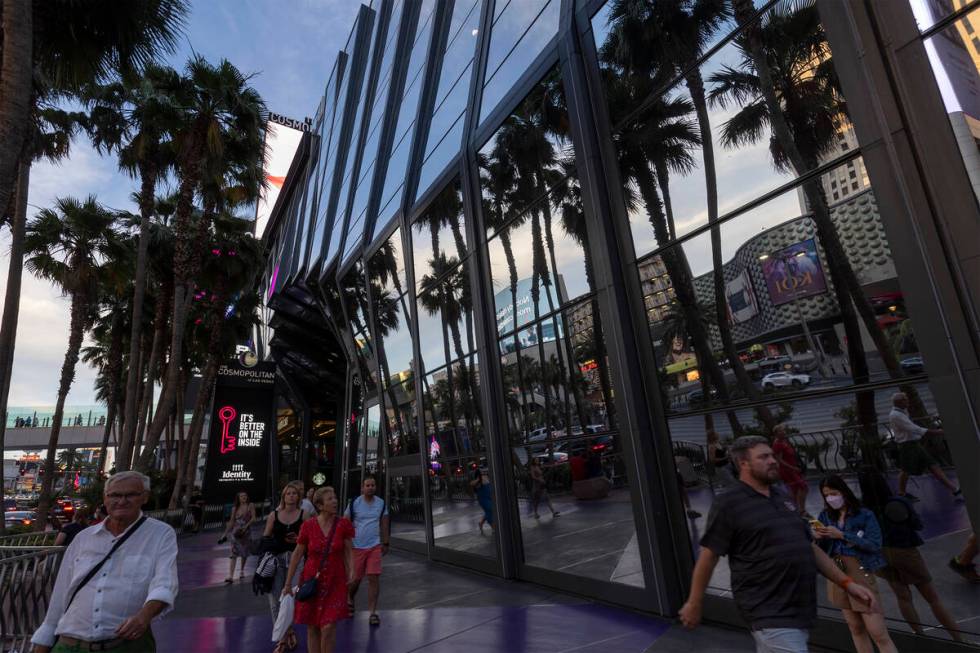Nevada’s real estate transfer tax could climb — but many big sales don’t generate any

From Bellagio and The Cosmopolitan of Las Vegas to the Rio, Palms and beyond, numerous Las Vegas properties sold for huge sums without producing a dime of real estate transfer taxes.
The result is big savings for buyers and sellers — and lost revenue for schools, low-income housing and other services in Nevada.
With the state’s next legislative session starting Monday, a bill would increase the transfer tax for a new “critical needs fund.”
But it’s unclear whether lawmakers plan to dig into the complex deal structures that have spared big companies from paying a tax routinely slapped on sales of homes, warehouses and other real estate in the Las Vegas Valley.
Senate Bill 68 seeks to raise the real estate transfer tax by 20 cents for each $500 of value. The money would go to a new fund that would spend it on assistance for “very low income housing,” supportive housing and supportive services.
The measure was introduced on behalf of the Clark Regional Behavioral Health Policy Board, a state advisory panel, and referred to the Senate’s Revenue and Economic Development Committee.
Transfer taxes make up a fraction of a property’s sales price. In Clark County, it amounts to 0.51 percent, meaning a $300,000 home purchase generates a transfer tax bill of $1,530.
But with houses and other properties frequently changing hands, especially in Las Vegas’ wheeler-dealer real estate market, this money adds up.
‘Follows the letter of the law’
Nevada generated more than $330 million in transfer tax revenue last fiscal year, according to the Department of Taxation.
Among last year’s haul, $177.8 million was for Nevada’s general fund. Nearly $63 million was for the Clark County School District, and $13.8 million was for low-income housing.
Nonetheless, Southern Nevada has seen plenty of real estate deals over the years that did not contribute to these revenue streams.
As the Review-Journal reported last spring, at least $27.5 billion worth of transactions in the Las Vegas area — comprising roughly two dozen sales involving hotel-casinos, malls and other properties mostly on or near the Strip — had closed since 2007 without any publicly reported real estate transfer taxes.
In such deals, buyers often acquire a limited liability company or other entity that holds ownership of the real estate, instead of purchasing the property directly. The deals also frequently cite a transfer tax exemption allowed under state law when property owners shift real estate to a subsidiary.
Deals without transfer taxes include the $4.2 billion sale of Bellagio in 2019; the $1.73 billion sale of The Cosmopolitan in 2014 and its $5.65 billion sale last year; and the nearly $3.9 billion sale of Aria and Vdara in 2021.
Bellagio’s sale alone could have generated more than $21 million in transfer taxes.
Casino giant MGM Resorts International, which sold the Bellagio’s real estate and several other properties tracked for our report, previously said this deal structure “is typical among real estate transactions involving businesses of all sizes, across a wide variety of industries.”
It added: “Every transaction we conduct follows the letter of the law and is in accordance with all regulatory requirements.”
‘Enormity of the situation’
Last year, then-Gov. Steve Sisolak, a Democrat, said the newspaper’s reporting “brought up the enormity of the situation,” and he was “hopeful” the Legislature “will look at this in its entirety” when the next session convened.
“We need to capture the transfer tax on those sales,” said Sisolak, who wasn’t aware deals were structured this way.
State Sen. Dina Neal, chair of the Revenue and Economic Development Committee, did not respond to requests for comment this week on SB68 or if any other transfer tax-related measures were being considered.
Sen. Fabian Doñate, the committee’s vice chair and a member of the policy board behind SB68, did not respond to requests for comment.
When asked for Gov. Joe Lombardo’s view of SB68, and whether he wants lawmakers to examine transfer taxes more broadly, his office said that Lombardo, a Republican who defeated Sisolak last year, “has consistently said that he will not support any tax increase.”
At first glance, transfer taxes might seem wonkish or arcane, but the revenue helps fund a range of services.
Time will tell whether Nevada lawmakers take a close look at deals that could add to this cash pile.
Contact Eli Segall at esegall@reviewjournal.com or 702-383-0342. Follow @eli_segall on Twitter.